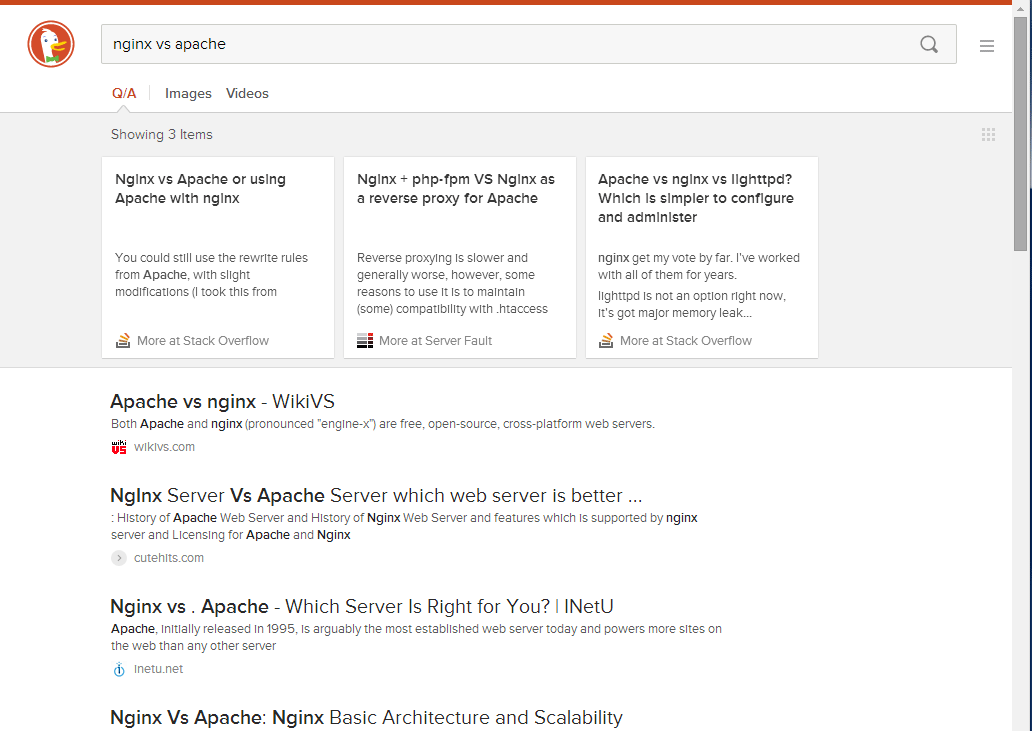New version of DuckDuckGo

DuckDuckGo is a hybrid search engine that has been operating since 2008, without search spam, almost without advertising, without spying on users (completely anonymous), supports hotkeys and other cool stuff . In general, a kind of geek "opposition" Google, created for a tiny group of protest electorate.
Yesterday a new beta version of DuckDuckGo was released on a separate domain, with improved design and advanced settings. They added many features that users have requested in recent years. In particular, there was a function of autocompletion of search queries (without collecting IP-addresses and other personal information about users), searching the database of questions and answers, on news, maps and goods, an excellent search for images and videos, as well as other important options.

')

In the coming months, it is planned to correct all the identified deficiencies and make next.duckduckgo.com the default version of the search engine. But now everyone can install a new interface as the main one at the bottom of the title page.
The audience of DuckDuckGo.com in 2011 was about 200 thousand per day , but in 2012, after changing the privacy policy, Google jumped sharply to 1.5 million, and in July 2013, after news of the introduction of the NSA into Google’s corporate infrastructure - in one fell swoop 4 million
Although the DuckDuckGo audience can be called tiny by the standards of Google, the search giant probably follows the “opposition”. There is one funny example that can be proof of this theory. In 2010, Google accidentally acquired the domain name Duck.com as part of the deal to buy On2 Technologies, the developer of TrueMotion video codecs. Duck is the former name of On2 Technologies. So, Google did not sell the domain as a non-core asset, as is usually done in such cases. And she did not put a redirect on the article in Wikipedia about ducks , which can be assumed as the most logical redirect for visitors to the site with the same name. Instead, all users of "duck.com" are redirected to Google.
Source: https://habr.com/ru/post/222045/
All Articles